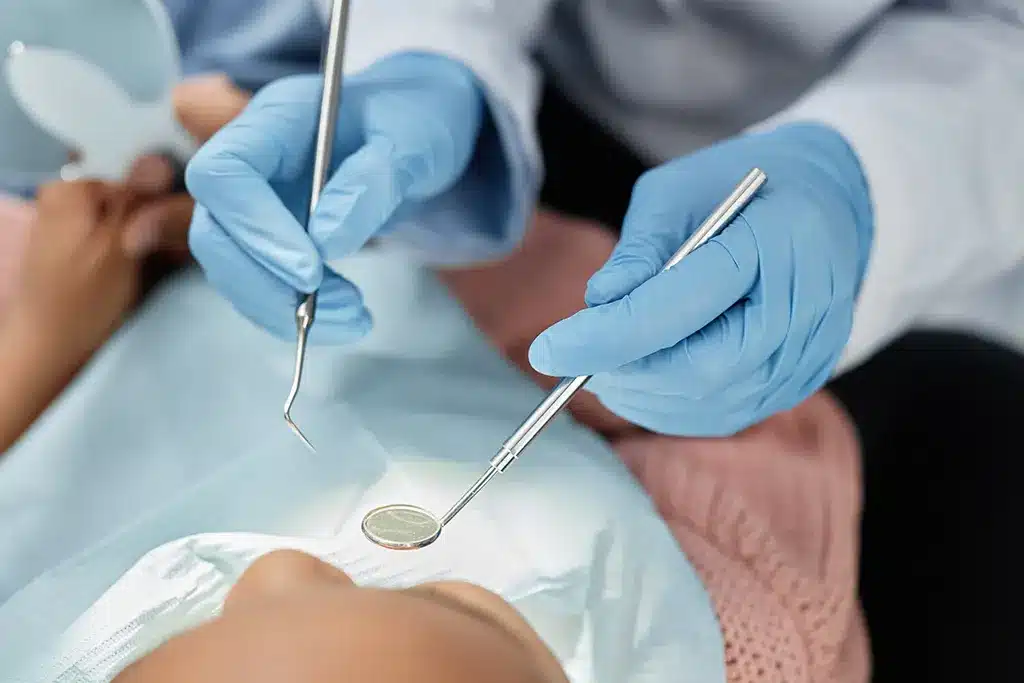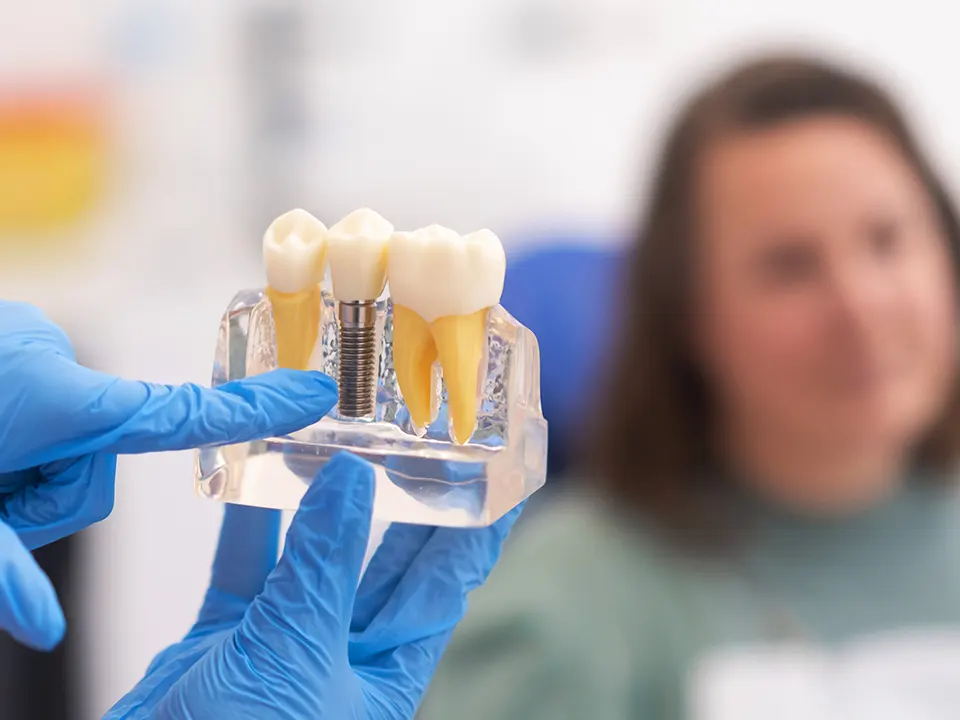
Pros and Cons of Veneers: Are They the Right Choice for You?
October 22, 2024
Emergency Dentist Guide: What to Do in a Dental Emergency
December 19, 2024Maintaining your smile with regular dental cleaning appointments is about more than just keeping your teeth looking bright. Routine professional dental cleanings play a key role in preventing various oral health issues like cavities and gum disease while also protecting your whole body from health problems. So, what exactly do regular cleanings help prevent? Let’s explore how regular cleanings can improve your oral health and keep you safe from other serious health concerns.
Preventing Oral Health Issues
Most people are familiar with some of the obvious benefits of regular cleanings: preventing cavities and gum disease. But let’s break down why this routine visit is so powerful for your mouth:
Stopping Cavities Early: Regular teeth cleanings help catch cavities before they progress. During a cleaning, your hygienist removes the plaque and tartar buildup that can eat away at tooth enamel. This buildup, especially around the gum line, is hard to fully remove with just brushing and flossing at home.
Gum Disease Prevention: Consistent cleanings help prevent or stop the early stages of gum disease. When plaque isn’t removed, it hardens into tartar, which can irritate the gums, leading to inflammation and, eventually, gum disease if untreated. Regular visits for scaling and root planing (a deeper cleaning below the gum line) help to keep your gums healthy and free from infection.
Combatting Bad Breath: Plaque and tartar also contribute to bad breath by harbouring odour-causing bacteria. Regular cleanings tackle this bacteria, leaving you with fresher breath and better oral hygiene overall.

Preventing Tooth Loss: Severe gum disease can progress to periodontitis, a condition where the gums pull away from the teeth, potentially leading to tooth loss. A professional dental cleaning every six months or as recommended can help keep gum disease from reaching this stage.
Protecting Your Whole Body from Health Issues
We’re often told that oral health is closely tied to overall health, but regular cleanings can actually help prevent a surprising range of health issues beyond the mouth. Here are a few conditions that regular dental cleanings can help reduce your risk for:
1. Diabetes Complications
Oral health and diabetes are closely linked. People with diabetes have a higher risk of gum disease, and having gum disease can make it more difficult to manage blood sugar levels. In turn, this can lead to a cycle where both conditions worsen. Regular dental cleanings help keep gums healthy, which can be particularly important for those managing diabetes. By removing bacteria-laden plaque, cleanings reduce inflammation in the body, which may help keep blood sugar levels more stable.
2. Lung Infections
Believe it or not, the bacteria in your mouth can make its way to your lungs. Studies show that poor oral hygiene and plaque buildup can contribute to respiratory infections like pneumonia, especially in older adults. Routine teeth cleanings reduce harmful bacteria, helping to lower the risk of infections reaching the lungs.
3. Pregnancy Complications
Pregnant women are more susceptible to gum inflammation, also known as “pregnancy gingivitis,” due to hormone changes. Regular dental care, including cleanings, helps maintain good oral health and reduces the chance of pregnancy complications.
4. Oral Cancer Detection
During a routine cleaning, your dental hygienist doesn’t just clean your teeth—they also check for signs of other health issues, including oral cancer. Early detection is key in treating oral cancer effectively, and your dental team can spot warning signs and refer you to the appropriate healthcare providers if necessary.
How Regular Cleanings Keep Your Mouth Healthy for the Long Haul
Regular dental cleanings do more than provide immediate benefits. By keeping your mouth free from plaque and tartar, they lay a foundation for long-term health.
Strengthening Teeth with Fluoride: Our dental cleanings include a fluoride treatment, which helps strengthen teeth against decay. Fluoride forms a protective layer on the enamel, making it harder for acids to cause cavities.
Maintaining Good Oral Health Routine: Regular cleanings reinforce the importance of brushing and flossing daily, helping to create a routine that can prevent decay and gum problems.
Frequently Asked Questions About Dental Cleanings
Q: What exactly does a dental cleaning involve?
A: During a cleaning, a dental hygienist removes plaque and tartar from your teeth, often paying special attention to the gum line. They may perform scaling and root planing if needed, polish your teeth to remove surface stains, and sometimes apply a fluoride treatment.
Q: How often should I get a dental cleaning?
A: Most people benefit from a cleaning every six months. However, people with gum disease or those at higher risk for dental issues may benefit from more frequent cleanings. Dr. Regehr will help you to determine the right schedule for you.
Q: Are cleanings safe for people with sensitive gums?
A: Yes, cleanings are safe, but let your hygienist know if you have sensitive gums. They can use techniques to minimize discomfort and ensure you feel at ease.
Q: Can cleanings really help prevent heart disease?
A: Yes! Research shows that poor oral health can increase the risk of heart disease. Regular cleanings help reduce the amount of bacteria in your mouth that can potentially enter your bloodstream and affect the heart.
Why Routine Cleanings Are Essential
Routine cleanings aren’t just a good habit—they’re a powerful way to safeguard your overall health. By maintaining good oral health, you’re also making choices that impact your body as a whole. Protecting your teeth and gums helps you avoid costly treatments down the line and contributes to a healthier, happier life.
At Regehr Family Dental, our dental hygienists are here to help you and your family keep up with your oral hygiene and prevent problems before they start. Schedule your next dental cleaning today to keep your smile and your health on the right track.



